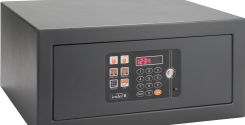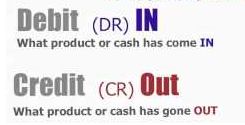Fritz Sybergs Vej 9
DK 8270 Hojbjerg
Scandinavia
info@dynamicbusinessplan.com


Reconciliation
To reconcile is to "check written records to see if they are in tune with reality".
If the record shows that there should be 20 $ in the petty cash box you open the cash box to see if it is true. Then you have reconciled the petty cash.The records that should be reconcile at regular interval is:
- Bank Book
- Petty Cash Book
- Salaries and deductions schedules
- Stock control records
Reconciliation of Bank Book
The Bank Book should be reconciled against the bank statement at least once a month. Here you will find out whether the company record is in accordance with the bank´s records.This you do by taking the "closing bank statement balance" for a specific period of time. For the same period you retrieve a report from the PC bookkeeping programme from the "Bank account". Then you compare the two.
There will almost always be a difference because of time delays, such as:
- Money banked, not yet credited to the account
- Cheques issued by the company but not yet drawn by the supplier
- Bank charges and interest applied
- Standing orders
- Errors made by the bank or by the company

Reconciliation of Petty Cash Book
Reconciliation of the Petty Cash Book should be done every week. It should be easy if you use the "imprest system".
Imprest means that the petty cash box gets a specific amount in advance.
You add or subtract the entries in the petty cash book since last
reconciliation. You count the cash in the petty cash box.
The two figures have to add up to the advance given to the petty cash box.
Reconciliation of Wages Book
The wage records and specially the deductions records are notorious for containing inaccuracies. They must be reconciled every month to ensure the correct deductions are being made.
Reconciliation of stock records
Stock must be checked against the supplies held in the store and receipts from sales.
An example:
- You have 60 computer games in stock in your Game Shop at 1 January
- From 1 January to 31 March you buy another 16 games
- From 1 January to 31 March you sell 26 games
- 31. March there should be 50 computer games in stock
- You go to the Shop and count how many games there are in stock
- You only find 49 games. 1 is missing
- 1 computer game cost you 50 $. You sell it for 100 $
A simple stock control system could look like this:
|
Product: Computer games |
Item |
Cost value |
Resale value |
|
Value of stock at 1 January |
60 |
3.000 |
6.000 |
|
Add: Value of purchase between 1 Jan. to 31. March |
16 |
800 |
1.600 |
|
Deduct: Value of sale during period |
26 |
1.300 |
2.600 |
|
Expected stock value |
50 |
2.500 |
5.000 |
|
Actual stock value |
49 |
2.450 |
4.900 |
|
Difference |
-1 |
- 50 |
- 100 |

Don´t wait for the perfect opportunity. Start taking action, based on what you have readily available: who you are, what you know, and who you know.
- Saras D. Saravethy, professor in entrepreneurship


























